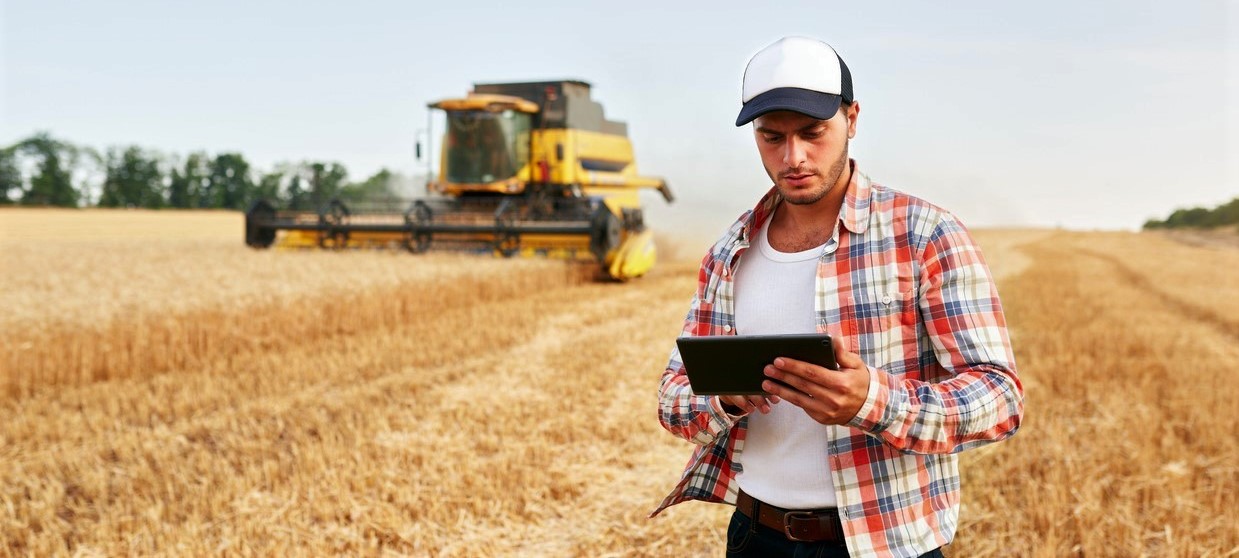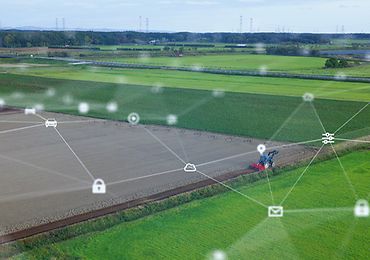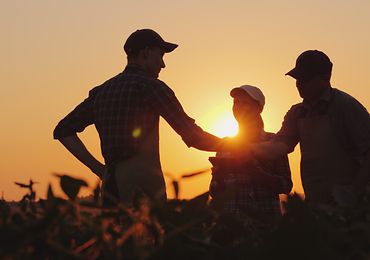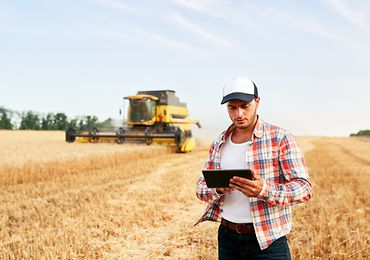Smart farming needs standards and specifications
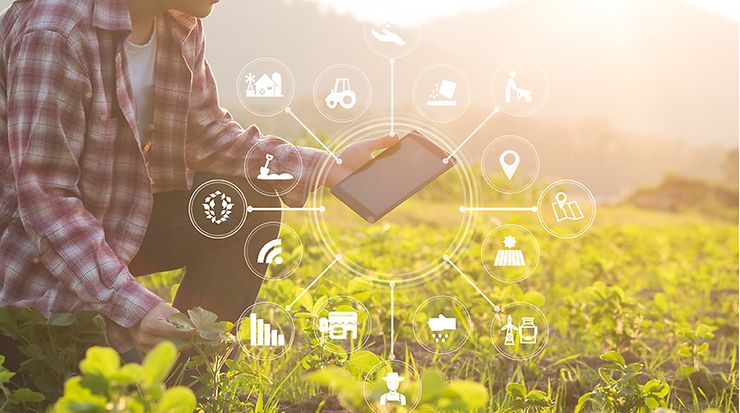
Standards and specifications are drivers for the digitalization of agriculture
The growing world population and climate change are increasing the demand for greater productivity and efficiency in agriculture. Digitalization enables an increased networking of all agricultural sectors and can thus make a significant contribution to meeting the challenges facing this sector. Smart farming, the modern use of information and communication technologies in agriculture, is of particular importance in this context. The use of satellite-controlled agricultural machinery and intelligent feeding systems, or the use of machine learning in the application of seeds are just a few practical examples of smart farming.
How can standards and specifications help smart farming?
In order for the drone and the tractor to understand each other and for the entire value chain of the food industry - from the farmer to the end customer - to be supported by digitalization, open interfaces and uniform data formats are needed. This is where standards and specifications come into play. They create a uniform language that all market participants understand, allowing them open access to new technologies. They also help to bolster trust in smart farming and increase the investment security of those involved.


